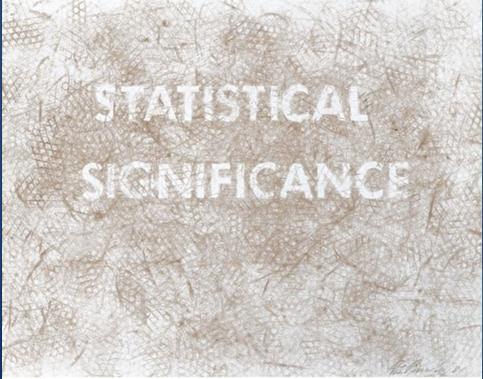Falling In Love

Drawing by Edward Ruscha
I was born clumsy. My family knew it long before anyone else. I tripped into thorn bushes and I fell down stairs. I knocked over milk glasses at the dinner table and experienced smashing accidents on my bike. But Nancy, my best friend from elementary school, was the opposite. Where I was unwieldy and weird, she was agile and athletic. She was gangly limbs and gap teeth; I was freckles and baby fat. But we were inseparable. So when the Howard Beach, Queens parks department installed monkey bars and a swing set in the swath of concrete outside Public School 203—one of those intimidating, geometric abstractions that looked like a medieval torture instrument—Nancy was the first in our third-grade class to ascend the full length of its horizontal peak. Though I’d already acquired a reputation for being clumsy in class, Nancy naturally wanted me to try it too; she was determined for us to do everything together. I happily obliged, if only to avoid letting her down. I also thought that somehow, if I managed to do this successfully, I could rectify my reputation, and seal myself a gleaming new history in the minds of my classmates.
As the rest of the class looked on in animated horror, I slowly traversed the bars, my hand testing each length of metal pipe before I pulled myself across another notch. Underfoot there was nothing more than a square-cut industrial carpet, and far beyond that, an island of concrete. Once all the way over, sweat pouring from my brow, I steadied myself on the crossbar, victorious, as if I was the one who ordered the rise and fall of the sun and moon and expected birds of a gentle feather to nestle upon my shoulder. I waved at everyone else to tell them that it was okay, using both hands, and with nothing to maintain my balance, I fell through the gap in the bars, tearing my favorite Brady Bunch tee-shirt and receiving a whopping black-and-blue smear marking my bum for both my bravery and my vanity.
Yes, I was humiliated, and yes, my reputation as a klutz was cemented thereafter, but this minor glitch in a life already brimming with glitches eventually led me to a revelation. The fact that I fell off the monkey bars was funny. People laughed when I told it and it made for a better story. I often think of this as I face a blank screen sitting down to write. For the blank screen, which has surpassed the blank page for many writers in this new century, is one of the great literary terrors.
The very challenge of writing is one of the reasons that I love writing. It grants me the opportunity to try and create order out of a disordered universe. Word by word, a string of narrative cohesion emerges from my slow labors, and when it all comes together to my satisfaction, I derive a pleasure unsurpassed by any other endeavor. I write to discover what I know about the world and about myself, and the more I fill the screen, the more I realize that life is far less than ordinary, and endowed with all the more magic for it.
Unfortunately, in a literary life, this is a magic that often proves elusive. A good writer once told me his philosophy of writing. He described it as a marriage, one that required monogamy and an abiding love. You didn’t have to bring it flowers every day, he said, but you did have to pay very close attention to it, because if you didn’t, it could easily betray you. If you were unfaithful, or lagging, it would break your heart into a million pieces, take your car and your house and your indoor swimming pool, and leave you with a long sob story for your AA meeting. Of course I laughed, but I knew exactly what he meant.
A writer has to be disciplined and rigorous. Is there any other way to unearth the buried secrets of the human condition? To discover new worlds through a spattering of words? Consider the genius of a writer like James Joyce, who, to quote Shakespeare, “with witchcraft of his wit and traitorous gifts” proceeded to map out the inner lives of two mere mortals, Stephen Dedalus and Leopold Bloom, and by following their daylong journey, thus managed to encapsulate for our enlightenment, universal beauties and truths. The sheer virtuosity of Joyce’s language, of imagination, moved me to sensuous swoons. Along with other favorite writers, such as Woolf and Dostoyevsky, Joyce sweeps me off my feet as if he were a ballroom magician.
Reading great writing is akin to a collision of spheres, a cataclysmic revelation magnificent enough to spew into the wide reaches of the universe the very origination of things, the very soul of creation. It mirrors our own experiences, describing our daily hurts and our daily joys, and it is this art that has swept the world stage for more than five centuries, with Gutenberg’s invention of movable type. And how appropriate this is, for we are creatures who desire to be moved, to experience profound emotions, and it is the lucky reader indeed who seeks to be swept off their feet. For when a writer is smitten by the muse, what music they provoke from their nervy fingers, sound enough to ripple across space and time, sound enough to browbeat away all calamity and misfortune, a powerful gravitational force that pulls you into the writer’s world, because this is the music that is more fortunate than heaven. One day, I hope that I am lucky enough to find that particular plot of cloud, hovering in the fly paths and resounding with the music of the spheres. Until then, I’ll have to make due with walking into glass doors, banging into hard-edged furniture, and tripping over my own two feet.


















2 Comments:
"this is the music that is more fortunate than heaven"
It sure is Debbie.
I can assure you that you have already collided with music of the spheres and will continue to rain as the wind blows you towards any direction.
I'll be hitting the curb and burning the cupcakes right along with you.
Post a Comment
<< Home